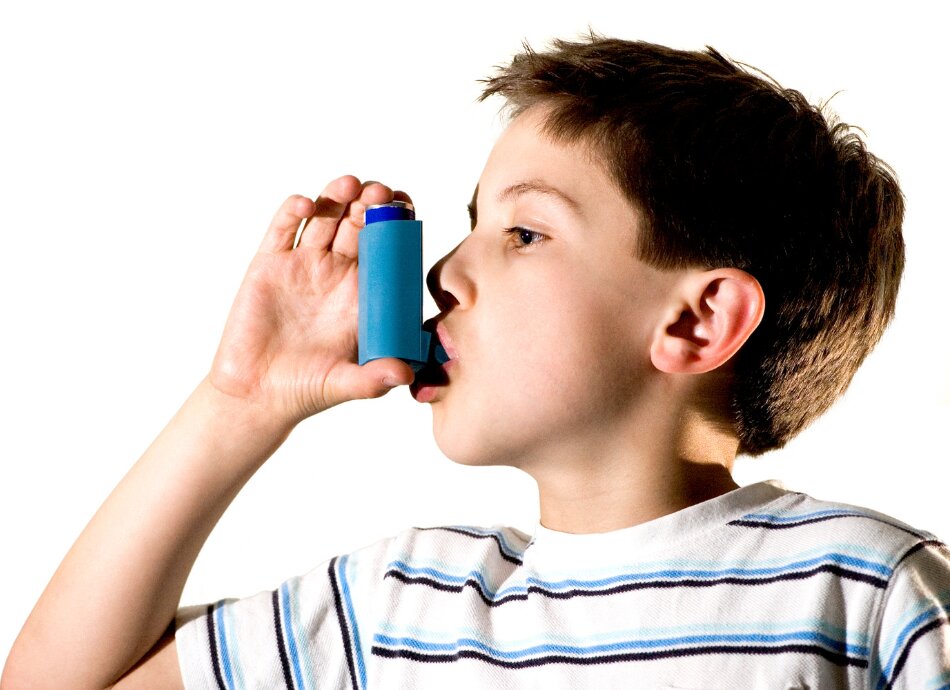Low or no data? Visit zero.govt.nz, scroll down the page then click on our logo to return to our site and browse for free.
Asthma – first aid
Key points about asthma first aid
- An asthma attack is an emergency – act fast.
- An asthma attack can take anything from a few minutes to a few days to develop.
- During an asthma attack, a person gets short of breath and has tightness in their chest.
- They will also be coughing, wheezing or breathless.
- Symptoms can quickly worsen so it's important to act quickly.

- In young children asthma symptoms may become worse very quickly.
- In some children, a change of behaviour may be an indication of worsening asthma.
- Learn more about an asthma emergency action plan for children 5 years of age and under(external link).
Children 5 years and older, teenagers and adults
|
If someone is having an asthma attack, follow the 'ASTHMA' acronym |
|
|
A = Assess Assess how severe the asthma attack is:
If the person has severe asthma or is frightened, call an ambulance on 111. |
|
|
S = Sit Sit the person upright and stay with them. Reassure them calmly. |
|
|
T = Treat With reliever inhalers: Symbicort, Vannair, DuoResp Spiromax, Ventolin, Respigen, SalAir or Bricanyl.  Image credit: Asthma Foundation NZ
Image credit: Asthma and Respiratory Foundation NZ |
|
|
H = Help If the person is not improving, call an ambulance immediately on 111. Continue to use the reliever inhaler every few minutes until help arrives. |
|
|
M = Monitor If the person is improving, keep monitoring them. If necessary, repeat doses of the reliever inhaler. |
|
|
A = All OK! When the person is free of wheeze, cough or breathlessness, they can return to quiet activity. If symptoms recur, repeat treatment and rest. It is important to always see a doctor after an asthma attack. |
The following links has more information about asthma first aid.
Asthma action plans – adults
Asthma action plans – children
Asthma emergency action plan for children 5 years of age and under(external link)(external link) Asthma NZ and the Lung Association, NZ
Brochures
Asthma – First aid poster (external link)Asthma and Respiratory Foundation NZ English(external link), te reo Māori(external link)
Asthma in school(external link) Asthma and Respiratory Foundation NZ
Asthma emergency action plan – children 5 years of age and under(external link) Asthma NZ
GINA patient guide for asthma – you can control your asthma(external link) Asthma Respiratory Foundation NZ
NZ adolescent and adult asthma guidelines(external link) Asthma Respiratory Foundation NZ
Summer holiday asthma and allergies checklist(external link) Asthma Respiratory Foundation NZ
Asthma checklist(external link) Asthma Respiratory Foundation NZ
Allergy and asthma fact sheet(external link) Asthma Respiratory Foundation NZ
Breathing and asthma(external link) (external link)Asthma Respiratory Foundation NZ
Apps/tools
Managing your child's asthma, Asthma & Respiratory Foundation, NZ(external link)(external link)
Is your asthma under control? - Asthma control test(external link)(external link)
References
- Asthma first aid(external link) Asthma and Respiratory Foundation, NZ
- What to do in an asthma emergency(external link) Asthma NZ
Credits: Healthify editorial team. Healthify is brought to you by Health Navigator Charitable Trust.
Page last updated:






